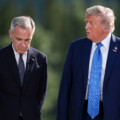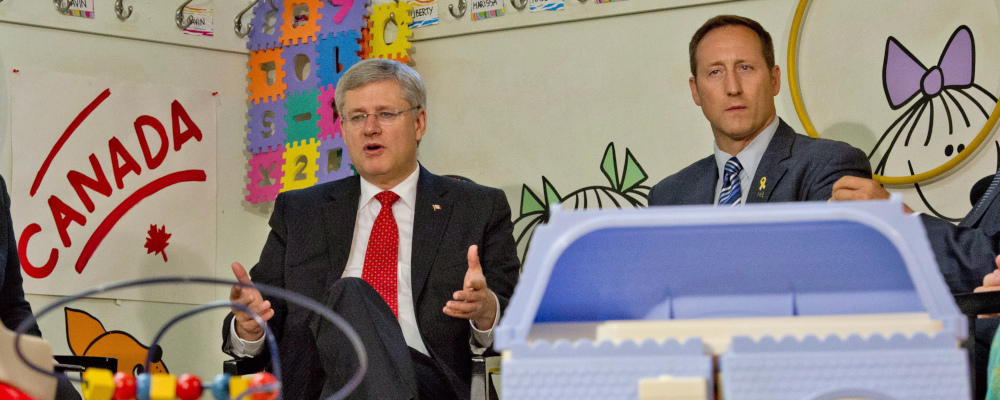Conservatism is not a universal ideology in the way that other political ideologies are. It is not a set of rigid dogmas that can be applied, with slight tweaks, across place and time.
Some conservative intellectuals, like Michael Oakeshott and Roger Scruton, have characterised conservatism less as an ideology and more as a “disposition.” There’s something to this, but it’s more than just an instinct that some people have. Built into this disposition are some basic fundamental assumptions about the world we live.
The first is a kind of realism about the world, a recognition of human fallibility and the limitations of what we can accomplish in this world. We should look at the world as it is, not simply as we want it to be. The second is an understanding of ourselves as inheritors of traditions, social orders, and institutions that shape our lives and that we too will one day pass on to someone else. We are both inheritors and stewards of living traditions.
This is why conservatism, properly understood, is not simply a programmatic set of prescriptions to be applied to society. It is inherently tied up in context and circumstance. It recognizes human diversity and particularity, and conservatism will look different in different places. This is not a weakness, it’s a strength, and it’s why we should resist efforts to think about conservatism in systematic ways, in the way that thinkers associated with other political traditions like liberalism or socialism do.
So instead of asking a question like “what is conservatism?” the questions we should be asking are things like “what is Canadian conservatism?” In the last few years, few people I suspect have spent as much time as me obsessing over the question “what does a distinctly Canadian conservatism look like?” It was a major reason I launched a newsletter, The Dominion, to try and think through this question.
A thesis I’ve been mulling over for a while, and one I am going to sketch out here, is that if we take the contextual and circumstantial nature of conservatism seriously, then it means that instead of talking about Canadian conservatism it may make more sense to talk about plural conservatisms. Canada is, and always has been, a country defined by sharp regional distinctions and differences. Canadian conservatism should reflect this. And it does, though in ways that are at times obfuscated by the ways that we talk about intra-conservative divisions.
We could look to academics to think and write about politics beyond partisan considerations, but conservatives are an endangered species in the Canadian academy.
My contention here is that there are two broad competing meta-narratives within Canadian conservatism that shape how conservatives orient themselves and approach politics. These two meta-narratives, that I will call the “Tory” and the “anti-Laurentian” narratives are deeper than just old PC-Reform divides and they are not really well captured by divides between blue and red Tories or any of these other labels we attach to them. They are deeper than mere ideology.
The question then, in thinking about the intellectual basis for conservatism in Canada, is how these two narrative relate to one another and is an intellectual fusion between these two camps possible?
There’s no ‘true’ conservatism tradition
If you browse through the various books written about conservatism in Canada, both for scholarly and public audiences, one thing you will quickly notice is how much of this literature is ultimately about partisan politics. Questions about conservatism end up just being questions about conservative politicians or parties. The books asking intellectual questions about Canadian conservatism tend to be books written by non-conservatives about the scary ideological and foreign influences on Canadian conservatives, but they still ultimately tie it back to partisan concerns.
The conservative movement in Canada reflects this as well. The professional conservative class in Canada is dominated by partisans, or people who work in partisan adjacent realms like consulting and government relations. We have some solid think tanks and publications, but the party looms large. We could look to academics to think and write about politics beyond partisan considerations, but conservatives are an endangered species in the Canadian academy.
The problem with this state of affairs is it means that there is very little, these days at least, in the way of thinking about first principles and intellectual questions around Canadian conservatism divorced from near-term partisan considerations or beyond public policy questions. This hamstrings conservatives, because first order questions matter in shaping how we approach the questions of the day.
The danger of a conservatism, or conservatives, divorced from a grounding in first principles and foundational thinking is that they become rigid dogmatists who mistake contingent policy prescriptions as timeless first principles.
History should matter to conservatives. It plays an important role in telling us who we are, where we come from, and is a guide to the inheritance that we seek to conserve. So the narrative we tell ourselves about about the community, way of life, or tradition that conservatives are “conserving” will inevitably shape the character and disposition of that conservatism. My argument is that conservatism in Canada has a series of different meta narratives that while not necessarily in direct conflict, don’t always sit perfectly with one another. But more basically, they tell different stories about Canada, and thus the conservatism that grows out of these different traditions looks and sounds different.
This isn’t a bad thing, per se. As I’ve already said, conservatism should reflect the particular and contingent facts of a political community and thus in Canada conservatism should reflect our regionalism. But this poses a serious challenge to the idea of there being a single, unified, or “true” Canadian conservative tradition.
The Tory impulse
The first tradition I’ll loosely term the “Tory” tradition. This is the older tradition of Canadian conservatism and even though in many ways as an organised political movement it has become something of an eastern Canadian rump, the meta-narrative and instincts endure. This tradition traces back to pre-Confederation Toryism in Upper Canada and is associated (though their role is sometimes overstated) with the loyalists who fled the United States after the American Revolution. It has its roots in the Family Compact and what has been called the “high Tory” tradition in North America and Upper Canada especially.
Another version of it is George Grant’s “Tory touch” thesis. Grant argued that Canada was founded and built around a common intent that brought the two founding peoples of Canada together because of on “an inchoate desire to build a society with a greater sense of order and restraint than freedom-loving republicanism would allow.” This is the intent for a nation that built Canada, and Grant saw it reflected in our founding Constitutional Acts in both 1791 and 1867. This is ultimately that basis for Confederation and the impetus for bringing the British North American colonies together.
This basic impulse, a natural conservatism and desire for peace and order, and dedicated to the protection and preservation of Canada’s British institutions and heritage is at the heart of this Canadian conservative tradition. You can associate it with people like George Grant, Donald Creighton, John Farthing, Eugene Forsey, and to a certain extent key founding figures like Macdonald. It is much more comfortable with the state and while not always explicitly anti-American, is dedicated to preserving Canadian sovereignty and distinctiveness in the face of expansive American cultural and political hegemony.
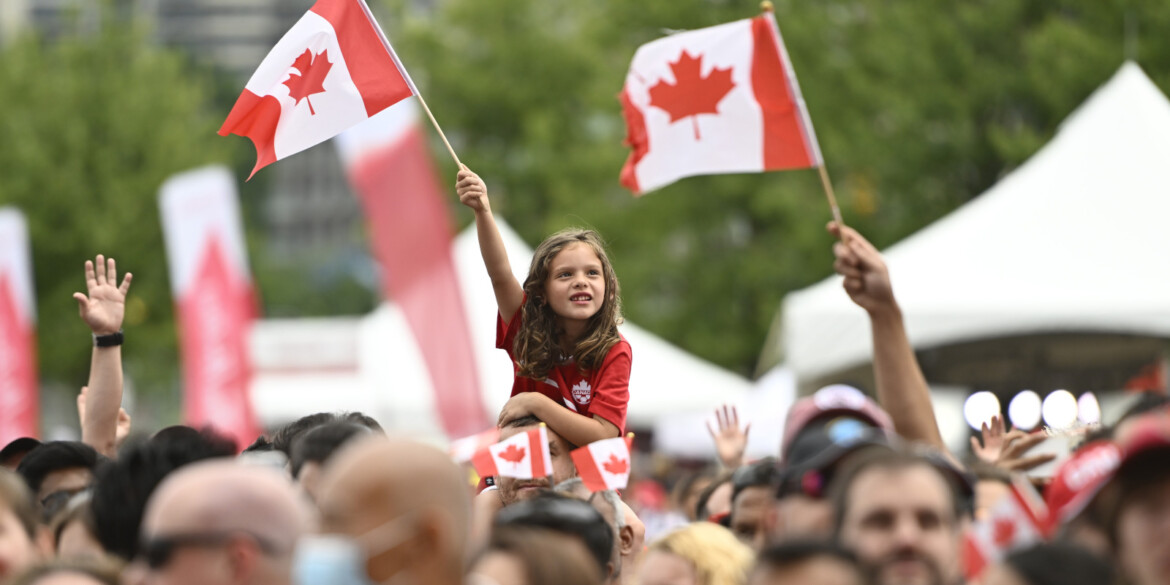
This kind of Toryism was a politically dominant force in Canada in the decades after Confederation, and very much represented the governing ideology, but it has undoubtedly been reduced to a rump or at least has evolved substantially into something quite different. You can think of the kind of British North America that this Toryism sought to preserve as English Canada’s version of the ancien regime.
While many of these institutions endure, they have gradually been eroded and in the postwar period the governing ideology of Canada shifted away from a Laurentian Toryism towards a Laurentian liberalism. New symbols and institutions like the Maple Leaf flag, the Charter, multiculturalism, and bilingualism became the hallmarks of a new Canadian identity, and these old Tories were reduced to a rump.
The triumph of the new Canada led to a schism in this tradition. Some of this tradition was essentially absorbed into the new Laurentian liberalism of postwar Canada. The desire for a peaceful and more orderly society remains, but that impulse has been transferred to preserving the symbols and institutions of the Liberal Canada. The rest of this movement, though it has largely been reduced to a rump, remains committed to varying degrees in preserving the older ancien regime vision of Canada.
But what is crucial about this tradition is that basic impulse, the commitment to order and restraint, and the general desire to preserve Canadian unity and the understanding of Canada as a union of two founding nations, remains an animating impulse and one that shapes and orients conservatives who draw from this tradition. Even if the explicitly British aspect of this tradition has faded, the basic impulse endures.
The anti-Laurentian tradition
The second conservative tradition in Canada, and the one that is now the dominant tradition, is what I’ll call the “anti-Laurentian” tradition. This tradition is much younger, and has its contemporary roots in Western Canada but in many ways is a tradition that dates back to pre-Confederation and the Reform movement.
Donald Creighton in his important 1937 book The Commercial Empire of the St. Lawrence popularised what is called the “Laurentian thesis.” Creighton was definitively not “anti-Laurentian” but the basic thesis that Canada was that Canadian development followed an economic pattern that was built around the St Lawrence river, essentially most of Upper and Lower Canada and where the majority of Canadians live.
This commercial empire, was essentially a staples and commodity colony for the imperial motherland and was the basis for Canadian development. The completion of the Canadian Pacific Railway enabled this project to begin a westward expansion.
The rapid expansion and growth of the West coincides with the Laurentian shift away from traditional Toryism and towards liberalism.
The Laurentian elite begin as the Family Compact in Upper Canada and Chateau Clique in Lower Canada. Confederation is a project primarily about protecting the material interests of this elite, and enabling westward expansion. The formal allegiances and partisan preferences of these elites have evolved and shifted since Confederation but, even if they go by a different name and partisan stripe, they remain a central Canadian, Laurentian-based elite that dominates Canadian institutions and public life.
Creighton was very much a member and defender of this elite class, as were many of the Tories described above, like Grant. They may have looked on with horror and despair as the Britishness of the Canadian elite faded, but the Tories of pre- and early-Confederation were very much Laurentians.
This anti-Laurentian tradition is born of different roots while accepting the fundamental thesis. The Manitoban historian W.L Morton, a conservative himself, observed of the inherent expansionist and exploitative nature of this Laurentian empire, and it is this impulse that is at the heart of the anti-Laurentian tradition. The West is of course much younger than Central Canada, and historically a home for populist movements. The West was settled by not just British and French settlers, but plenty of other European settlers, and was much more dependent and comfortable with closer relations with the United States.
The rapid expansion and growth of the West coincides with the Laurentian shift away from traditional Toryism and towards the liberalism (and progressivism) it is today associated with. As Western consciousness grows, a sense of discontent grows too. Frustration with the dominance of central Canadian concerns, especially the Laurentian obsession with Quebec fuels a sense of alienation and consciousness of the west as a distinctive region and place and not just the resource rich peripheries of the Laurentian empire.
This of course grows into the Reform movement led by Preston Manning and the proclamation that “the West wants in.” Conservatism becomes the natural oppositional home for this sentiment, and its conservatism is rooted in a distinctive sense of place, both in terms of geography and climate and also place in relation to Central Canada. The West is younger and newer, and visitors who come (myself included) find the kind of future-oriented nature and spirit of the West alluring.
As an intellectual tradition of conservatism, anti-Laurentian conservatism is really given substance and form by the so-called Calgary School and the various academics and intellectuals associated with it like Barry Cooper, Tom Flanagan, Rainier Knopff, and Ted Morton. The Calgary School has played an enormous role in shaping contemporary Canadian conservatism, and incorporated new conservative intellectual trends from elsewhere including figures like Leo Strauss and Freidrich Hayek into the Canadian lexicon. Its detractors may accuse this School of simply importing and Americanizing Canadian conservatism, but what they were actually doing is taking these influences and Canadianizing them by incorporating them into this anti-Laurentian tradition and impulse.
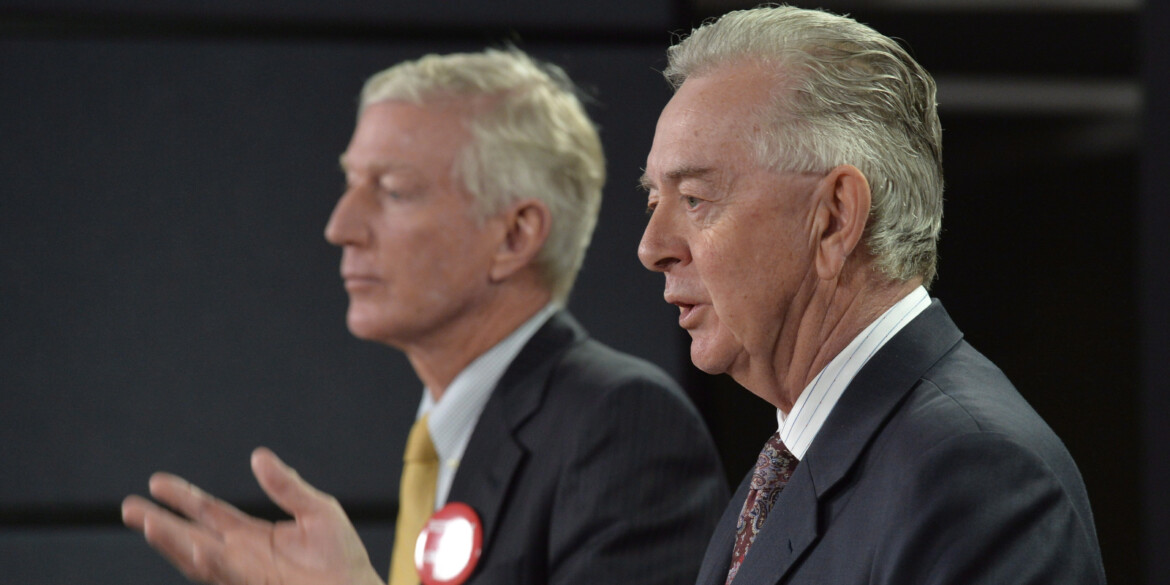
Another key intellectual source of inspiration for this tradition was Peter Brimelow’s 1986 book The Patriot Game that borrowed the concept of the “new class” from Irving Kristol to describe the Laurentian elites. Brimelow gives form to this anti-Laurentian narrative and describes how this new class manufactured a new national identity that both rejected our heritage and replaced it with a self-serving and contradictory ideology that serves the interests of this New Class. The strategy of the Canadian New Class throughout Canada’s history has been “to concentrate rents from a resource-based economy in Central Canadian hands.” This was done especially to placate Quebec and keep Confederation together at the expense of the West.
The artificial and hollow national identity constructed by the Laurentian new class served Laurentian interests and erased and excluded Western Canada. Opposition to Laurentianism was not simply focused on the Liberal Party, it was also aimed at the Progressive Conservatives who were on this account merely a flip side of the same Laurentian, central Canadian coin.
Conservatism’s messy Venn diagram
These two traditions are the dominant narratives that animate Canadian conservatism. The pluralistic nature of Canadian conservatism means there are even more distinct conservative traditions in Canada than just these two traditions. Quebec conservatism is the most obvious example and even in Quebec there are some very different and competing traditions you could call conservative. This argument isn’t mean to exclude those, the focus here is just on anglo conservatism in Canada.
These deeper narratives shaping and orienting conservatism in Canada do not just map on to conventional ideological intra-conservative divides. This divide isn’t just old Reformers versus Progressive Conservatives. It isn’t just an east versus west thing. It isn’t a simple Red Tory versus Blue Tory. There might be some overlap between these divides and these competing narratives, but it isn’t exclusive and you’ll find people from different narrative traditions on different sides of this.
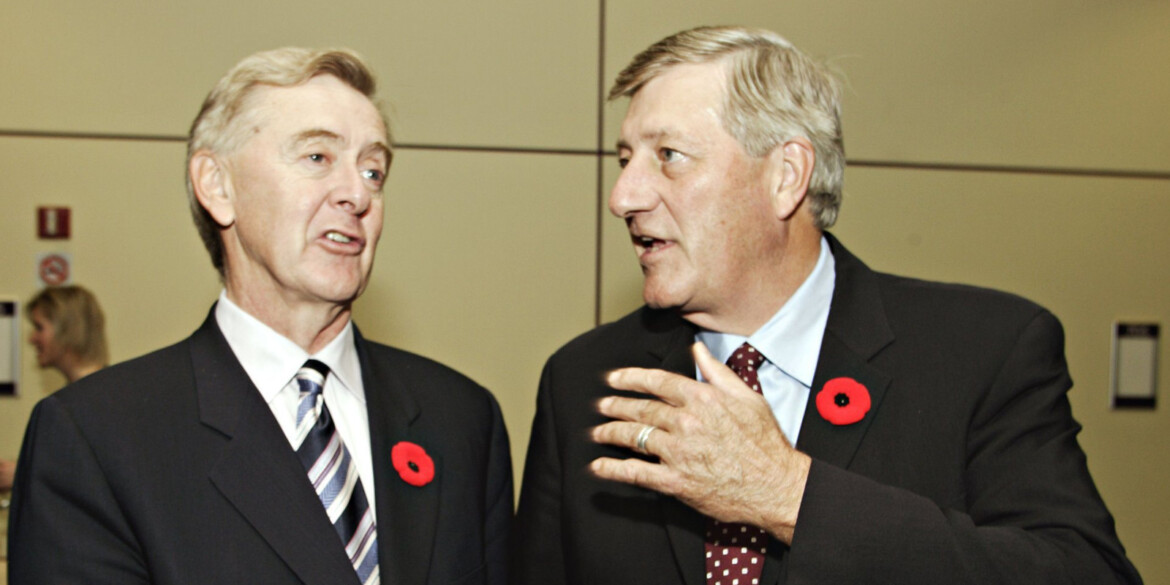
You’ll find progressive and “moderate” conservatives out west and in the anti-Laurentian camp. You’ll find social conservatives and neoliberal free market types in eastern Canada in the Tory camp. On top of these alternative narratives different ideological positions can be imposed, and new ideas can be imported from elsewhere, but these narratives will still shape our orientation towards politics and it is in these narratives that we see the distinctly Canadian grounding of conservatism in Canada.
These traditions exist only here, because they reflect our distinct history and development and mean that even when we import conservative ideas from other countries like the United States, they are still filtered through a Canadian lens.
But if these traditions orient conservatives in different ways, what effect does this have on the character of the conservatism that emerges out of them? Tory conservatism has its roots in a very British Toryism and the kinds of virtues that go along with that, and sees in 1867 a union of two peoples who came together to forge a society more restrained and orderly than the American republic. It is much more dispositionally deferential to power and public institutions, more restrained, and wants politicians and parties that reflect this.
Anti-Laurentian conservatism is much newer and younger, and is thus naturally more future-oriented. It has a country party disposition and is much less deferential to Canada’s governing institutions, and governing class. It is much more dispositionally populist. And in 1867 it sees a Confederation that is unfinished, one that doesn’t reflect the realities of Canada today, so it is much more small-r reform minded.
Much more could be said of these two traditions, but I think at this point you should be able to grasp the differences between these two traditions and how they orient conservatives in different ways.
Towards a Canadian fusionism
The question I am left with is whether it is possible, or desirable, to fuse these narratives together to create something resembling an overarching conservative tradition that we could call distinctly Canadian conservatism? I think so, but in recognizing our regionalism this means we shouldn’t want to completely merge them but provide some sort of broader narrative that ties these two traditions together. A distinctly Canadian fusionism.
Fusionism is a funny concept. It’s the type of American conservatism associated with National Review, William F. Buckley Jr and Frank Meyer (who coined the term) and was at its height during the Reagan years. It is a philosophical attempt to fuse traditionalist and social conservatism with libertarianism.
It was more than just an attempt to build a Cold War political coalition, it was an intellectual effort to try and provide a serious enduring philosophical basis and justification for this coalition. Fusionism for decades was the dominant strand of American conservatism and in many ways still shapes how many conservatives not just in America but elsewhere as well think about conservatism.
But the kind of fusionism I’m proposing here is not akin to the American version in the sense of being an ideological fusion. It isn’t about fusing different ideological positions together. It’s about fusing two understandings of Canada’s origins, and where Canada is going. It’s about fusing together two basic foundational myths. It’s beyond the scope of this essay, and a single person, to try and figure out what this Canadian fusion looks like and if it’s even desirable. But the rest of this piece will briefly lay out a few ideas of what this fusion could be built around.
While we tend to talk about politics in terms of left and right divides, a better way to think about political divides in Canada is the old court/country party distinction. This divide goes back to early modern Britain and after the Glorious Revolution just as parliamentary and responsible government was beginning to take shape.
Sir Robert Walpole, Britain’s first de facto prime minister, created stable and enduring parliamentary majorities through skillful use of patronage and corruption. He used this to consolidate power during a period in which there was a burgeoning growth of a fiscal-military state based on public credit and insecure financial institutions.
An opportunity is emerging for conservatives to reclaim patriotism, or at least make a serious claim to it that they haven’t in a long time.
Opposition to this “court” party came from figures like Lord Bolingbroke, who denounced this regime as corrupt and undermining the national interest, instead serving the interests of a cabal of self-interested elites who had built a regime to consolidate their power. Opposition to this regime could only come from patriotic agrarian and countryside forces who were sceptical and suspicious of this emerging bourgeois merchant class. It would take public spirited and patriotic opposition to eventually tame the country party and restore the constitutional settlement of 1689 that people like Bolinbgroke felt had been corrupted by Walpole and his supporters.
I said already that the anti-Laurentian conservatism has a country party disposition, but it makes sense to think of Canadian conservatism as a whole as being in essence the contemporary country party, in opposition to the Laurentian court party. But where there is opportunity and potential in a fusion is in thinking of this not simply as opposition, but as a patriotic movement that seeks to overthrow an increasingly less self-confident Laurentian elite that has abandoned the traditional patriotism that animated it.
A problem with Canadian conservatives is that at times they seem not to like Canada very much. In some ways this is understandable. Modern Canada was reshaped by Laurentian liberalism, and conservatism (especially anti-Laurentian conservatism) exists in opposition to much of this. But increasingly, an opportunity is emerging for conservatives to reclaim patriotism, or at least make a serious claim to it that they haven’t in a long time.
Laurentian liberalism has in recent years become more overtly progressive and the intellectual north star for many Laurentian institutions and individuals is a progressive worldview increasingly uncomfortable with Canada. Filtered through this lens, Canada is an illegitimate and irredeemable settler colonial project, and as it imports more and more of the critical race inspired diversity, equity and inclusion worldview from the United States, it speaks a language increasingly Americanized and disconnected from most Canadians.
Here lies an opportunity for a Canadian fusionist conservatism.
This fusionism could become the champion of Canadianism, and become the new patriotic flag-bearers. It could reclaim the old Tory mantle and spirit that made this country and forged Confederation in 1867, becoming the unapologetic defender of Confederation. In doing so it could both emphasise the importance of the older symbols, history, and institutions that Tory conservatives remain loyal to, while also being a future-oriented and reform-minded movement that recognizes that Confederation is an unfinished project.
This isn’t about overthrowing the various national symbols and institutions that were introduced by post-war Laurentian liberalism, like the flag and the Charter. It’s about actively thinking of the conservative idea of Canada as placing these older historical moments and institutions on equal standing and as an equally important part of who we are. You could think of this first part as rediscovering Macdonald, and openly defending his legacy.
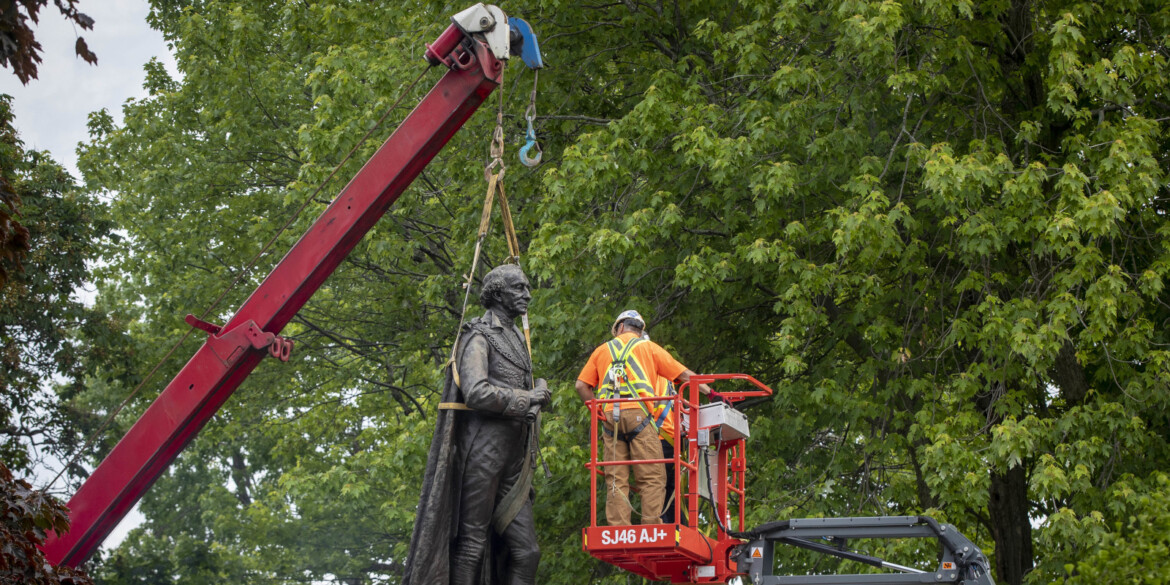
But in recognizing that Confederation is worth defending and also an ongoing project in need of some reform, it should also look to the ideas and legacy of another Conservative prime minister, John Diefenbaker. Diefenbaker, who had German origins, was the first prime minister from a non-British and French background who appropriately saw Canada as more than just two founding nations.
As a son of the West, he knew that English Canada was not simply one unitary body, and that within English Canada there were distinctive interests, identities, and histories too. Diefenbaker, a gifted orator, opened the 1957 federal election with an all-time great Canadian speech in which he called for “one Canada, with equality of opportunity for every citizen and equality for every province from the Atlantic to the Pacific.”
A Canadian fusionism could channel the spirit of Diefenbaker, but in doing so recognize Canada’s distinctive regionalism and identities beyond just an English-French divide. Thus at the core of this is a recognition that in defending and preserving the union in 1867, Confederation is an ongoing and unfinished project that requires reform. The alternative that this fusionism could offer is one that could be called a “conservative pluralism” in opposition to Laurentian progressivism.
In channelling the spirit of the country party and taking up the mantle of patriotism, a Canadian fusionism could combine the reforming and anti-Laurentian opposition of one of Canada’s conservative tradition with the traditional Toryism of Canada’s older conservative tradition that was routed and turned into a rump by the triumph of Laurentian liberalism.
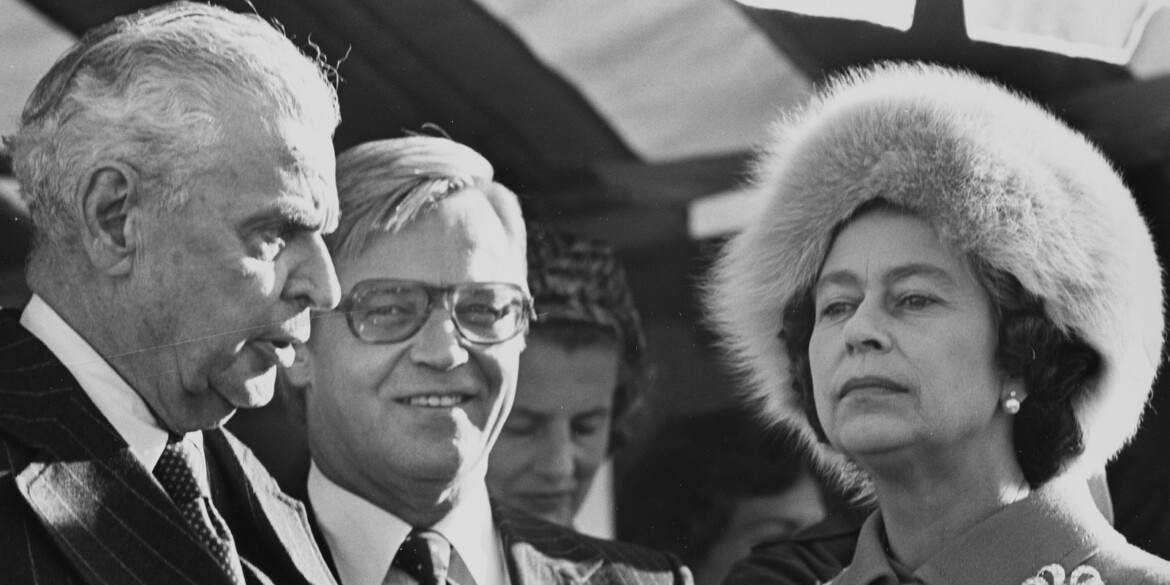
In becoming the champions of Canada as progressives abandon these values, this fusionism could be an intellectual basis for stable and enduring governance, not just opposition. And it could be future-oriented and champion a blueprint for Canadian greatness that recognizes that changes and shifts that are taking place in Canada.
This fusionism would be an authentic and distinctly Canadian fusionism because it fuses the two dominant conservative narratives in Canada while at the same time recognizing the regional and pluralistic nature of Canada and thus not seeking to entirely merge and homogenize these traditions.
The broader narrative presented here is not so much a way of unifying the traditions but a way of threading them together so that even when there are differences and disagreements, partisans from the two traditions recognize each other as kin. But if nothing else, when we think and talk about conservatism in Canada we should recognize that there is more to it than mere ideological and public policy divides.
When we think about what exactly it is we are seeking to conserve, these different traditions will continue to animate and orient how we approach politics and the country we all call home.
Recommended for You

Need to Know: Mark Carney’s digital services tax disaster

Theo Argitis: Carney is dismantling Trudeau’s tax legacy. How will he pay for his plan?

Kirk LaPointe: B.C.’s ferry fiasco is a perfectly Canadian controversy

‘I want to make Canada a freer country’: Conservative MP Andrew Lawton talks being a newbie in Parliament, patriotism, and Pierre Poilievre’s strategy
